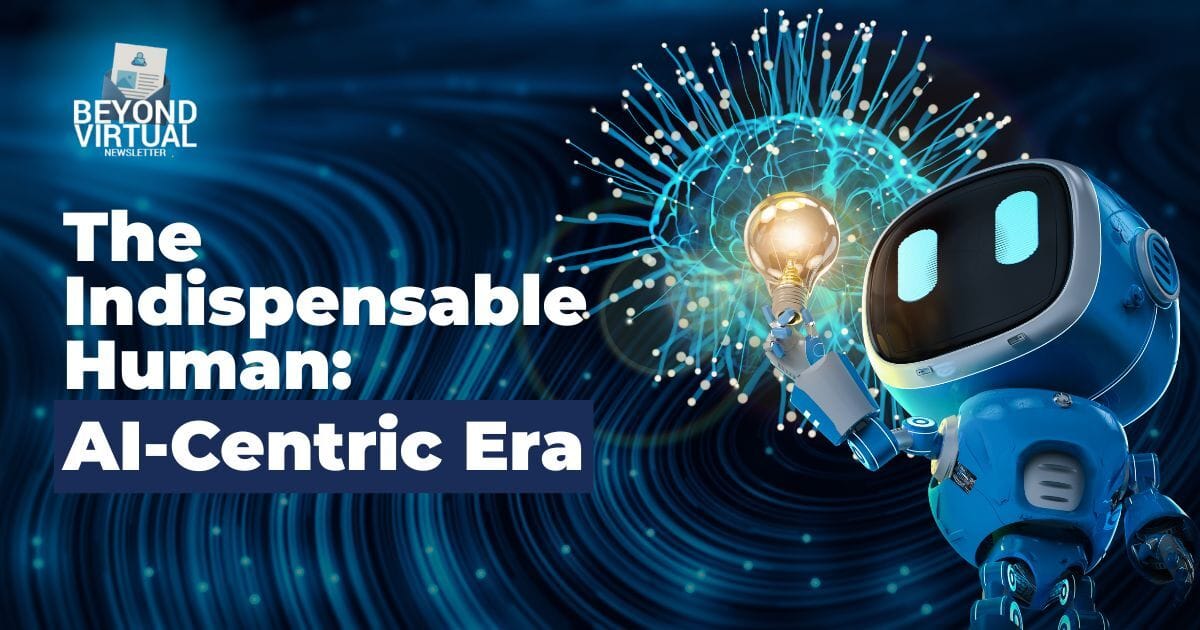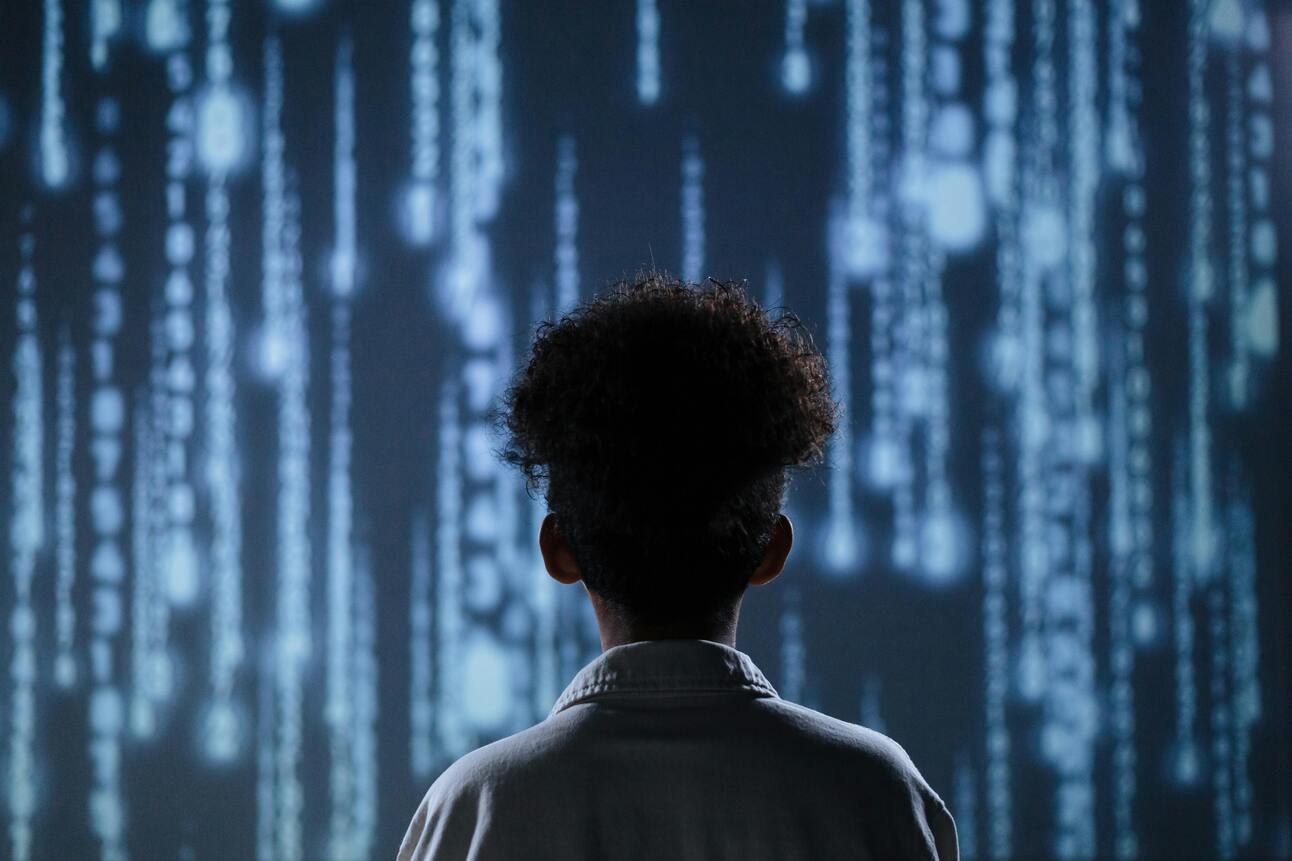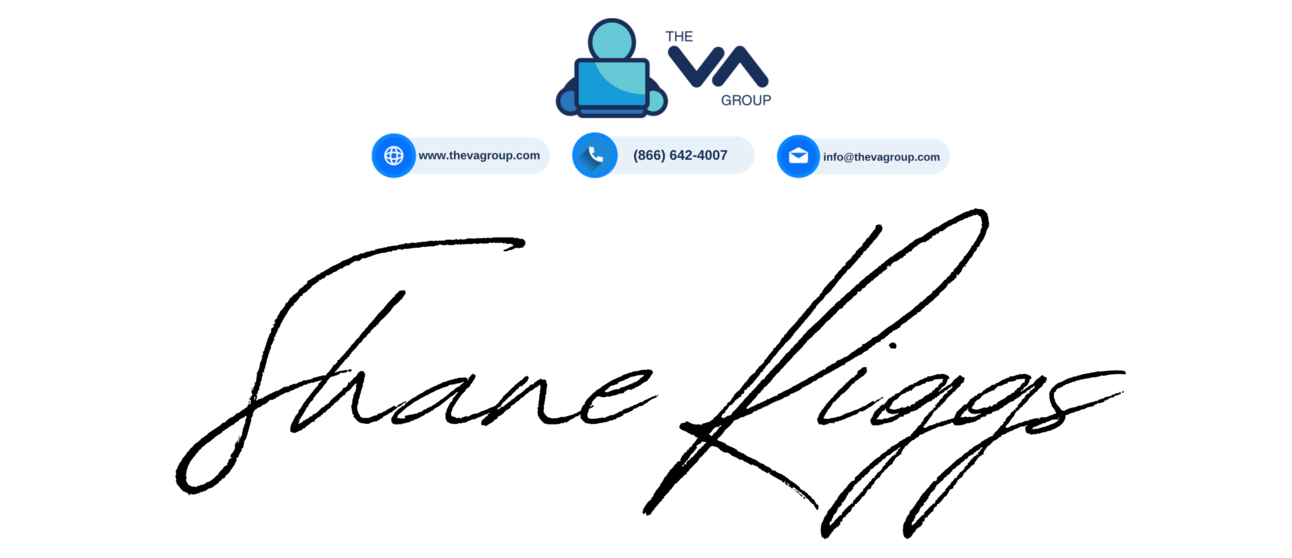- The VA Group
- Posts
- The Indispensable Human: AI-centric Era
The Indispensable Human: AI-centric Era
The Numbers That Made Me Think Twice

BEYOND VIRTUAL
I was reading stuff online last Tuesday when a headline stopped me cold: "AI-skilled workers see 56% wage premium." Wait, what? In a world where everyone's panicking about robots taking jobs, the humans working alongside AI are actually getting paid more!
This caught my attention because recent data shows AI-skilled workers commanded an average 56% wage premium in 2024 [1], which is double the 25% premium from the previous year. And this made me realize that we’ve been tackling things the wrong way. Instead of debating whether AI will replace us, why not focus on how we can become indispensable in an AI-driven world?
The data is honestly a bit of a mess when you dig into it. Recent research from Socius reveals that 14% of workers have already experienced job displacement due to automation or AI [2], which sounds scary until you realize that new studies show AI could actually lead to the creation of around 97 million new jobs by 2025 [3]. These numbers feel contradictory, don't they? That's because this whole transformation is messy, uneven, and honestly, pretty confusing for most of us trying to figure out where we fit.
What I've come to realize, though, is that the story isn't really about replacement. It's about something more interesting, and dare I say, more promising.
Welcome back to Beyond Virtual, your go-to resource for exclusive AI-powered businesses, and this issue, let’s talk about the value of our existence in today’s ever-changing world.
Feature Story
THE HUMAN FACTOR: WHY WE STILL MATTER
This week, I want to share something that might seem a bit backward-looking. I stumbled across this YouTube video from IBM a few years back. I know, it might be an old video, but it still holds true, maybe even more so today.
The speaker talks about something that resonates deeply with where we are right now.
While AI gets faster, more accurate, and frankly, sometimes eerily intelligent, there are certain human qualities that seem to become more valuable, not less.
It's like... have you ever noticed how the more digital our world becomes, the more we crave authentic human connection?
I think about my doctor, for instance. Sure, AI can diagnose certain conditions faster than she can, and it probably knows more medical literature than any human ever could. But when I'm sitting in that examination room, worried about test results, what I need isn't just diagnostic accuracy. I need someone who can read the anxiety in my voice, who understands that behind my clinical questions are very human fears about mortality, family, and the future.
The video touches on this beautifully, though perhaps without knowing how foresightful it would become. We're not just competing with machines on their terms anymore. We're defining what makes us irreplaceably human.
Visionary Voices
MEET CHLOE: OUR AI AGENT WITH THE HUMAN TOUCH
Sometimes, I catch myself amazed by how much technology has improved. But then, I’m even more amazed at the people behind these incredible pieces of tech.
Think of Steve Jobs, who brought Apple to life. Or the brilliant minds at Google who made Veo 3 possible. It’s every human who had a dream and poured in countless hours to build the things that make our lives easier today.
That’s why, when we envisioned Chloe, our AI receptionist agent, it wasn’t simply about automating tasks. We wanted to create something new, with a deeply human touch at its core, while still being incredibly efficient.
Imagine: 24/7 inbound call handling, a comprehensive dashboard, and even making calls that no sane person would dare to do!
She’s living proof that even the most impactful AI isn’t a replacement, but a brilliant amplifier of our unique human expertise.
If you’re curious about how well this AI agent can converse, try giving our number a call at (725) 237-8743!
The Trend
THE GREAT SKILLS PARADOX

Here's where things get interesting, and frankly, a bit contradictory. Current research shows that over 90% of companies are either using or exploring AI in their businesses, with 28% having used AI to cut their company’s costs [4]. You'd expect this to mean fewer jobs for humans, right?
Wrong. Or at least, not exactly.
Data actually shows job availability grew 38% in roles more exposed to AI [5], though this was still below the growth rate in less exposed occupations. What's happening here? I think we're witnessing what I'm calling the "Skills Paradox."
The more AI handles routine tasks, the more valuable distinctly human skills become. AI does not replace human skills but complements them, especially creativity, leadership, and learning. More than just what we accomplish, it’s about our way of thinking, how we build relationships, and how we deal with the unknown.
Consider empathy for a moment. Studies show that while AI can initially provide emotional support, people ultimately prefer empathy from humans. This isn't sentiment; it's market reality. AI can recognize and analyze emotions, but it can't truly understand them or respond to them in a meaningful way.
But you know what makes this trend more interesting? It's not just about preserving old human jobs. It's about creating entirely new categories of work! The integration of AI and human intelligence in 2025 is not about competition; it's about collaboration. We're seeing the emergence of roles like AI trainers, human-AI interaction designers, and algorithmic auditors. Jobs that literally couldn't exist without both human insight and artificial intelligence.
“AI is more likely to complement human workers rather than replace them, but this requires us to be intentional about developing human-intensive capabilities. The organizations that will thrive are those that figure out this collaboration equation first.”
I suspect we're still in the early stages of understanding this shift. The numbers suggest transformation rather than replacement, but the emotional reality for many workers feels much more uncertain. Perhaps that's exactly why developing those uniquely human skills—the ones that help us navigate uncertainty itself—becomes so crucial.
A Final Note
WHAT THIS MEANS FOR US (AND WHAT’S COMING NEXT)

Let me break this down into the key takeaways:
• The wage premium is real: The 56% wage premium for AI-skilled workers highlights the value of learning to work with AI, not against it [1].
• Job displacement is happening, but so is job creation: While 14% of jobs are displaced, 97 million new ones could appear by 2025 [5]. The challenge? Preparing for the right roles.
• Human skills are becoming premium skills: Creativity, leadership, and learning are being complemented, not replaced by AI.
• Empathy is economically valuable: People prefer empathy from humans, making emotional intelligence a measurable business asset.
• The collaboration model is winning: Success in 2025 is about AI and human intelligence working together.
The reality is, we're not just adapting to AI, but rather we're designing a future where humans and artificial intelligence create value together in ways neither could achieve alone. Which brings me to something I've been thinking about for our next issue…
How do we design workplaces for this new reality? How do we create environments where humans and AI don't just coexist, but amplify each other's strengths?
Next issue, we're diving into "Designing the Future Workplace" to see how we can create environments where humans and AI don't just coexist, but amplify each other's strengths.
Ready to stop juggling and start leading? Our co-pilot teams are the future when it comes to scaling your business.
Until next time,
Shane

Sources:
SEO.ai. (2024, Dec 2). AI Replacing Jobs Statistics: The Impact on Employment in 2025.
Weforum. (2025, Jan 20). How we can elevate uniquely human skills in the age of AI
Exploding Topics. (2025, May 28) How Many Companies Use AI? (New 2025 Data).
Edison & black. (2024, April 15). Over 97 Million Jobs Set to be Created by AI.
National Bureau of Economic Research. (2019). The Economics of Artificial Intelligence: An Agenda
National University. (2025). 131 AI Statistics and Trends for 2025